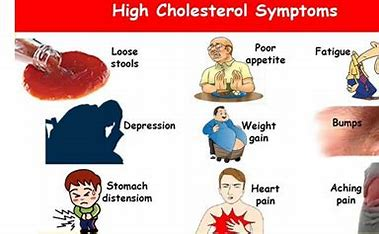High cholesterol, particularly elevated levels of low-density lipoprotein (LDL), often goes unnoticed because it typically doesn't cause obvious symptoms until it leads to more serious health problems. However, certain signs can indicate that your cholesterol levels might be high, especially in men. Here are five signs that may suggest an increase in LDL levels:
1. Chest Pain or Angina
- Description: High cholesterol can lead to the narrowing of coronary arteries, reducing blood flow to the heart, which may cause chest pain or discomfort, especially during physical activity or stress.
- Implication: Angina is a warning sign of coronary artery disease, often associated with high cholesterol levels.
2. Erectile Dysfunction
- Description: Reduced blood flow due to cholesterol buildup in blood vessels can impair circulation, affecting the ability to achieve or maintain an erection.
- Implication: Erectile dysfunction can be an early sign of atherosclerosis and cardiovascular issues linked to high cholesterol.
3. Xanthomas (Yellowish Deposits of Cholesterol)
- Description: Small, yellowish lumps of cholesterol can form under the skin, commonly around the eyes, elbows, knees, or Achilles tendon.
- Implication: These deposits are a visible sign of high cholesterol and can indicate more severe underlying lipid abnormalities.
4. Shortness of Breath
- Description: High LDL levels can lead to the buildup of plaque in the arteries, which can cause reduced blood flow and make breathing more difficult during exertion.
- Implication: This is often linked to heart-related issues, suggesting that cholesterol is affecting cardiovascular function.
5. Numbness or Tingling in Extremities
- Description: Cholesterol buildup can reduce blood flow to your limbs, causing a feeling of numbness, tingling, or coldness in hands and feet.
- Implication: This could indicate peripheral artery disease, which is often associated with high cholesterol levels.
Key Takeaway:
High cholesterol often presents silently but can manifest through subtle symptoms that signal serious health issues. Regular check-ups, a balanced diet, exercise, and lifestyle changes are crucial to managing cholesterol levels and reducing associated risks.
Would you like more information on managing high cholesterol or ways to lower LDL levels effectively?








0 Response to "High Cholesterol Symptoms in Men: 5 Signs That Indicate Increase in LDL Levels in Your Body"
Post a Comment